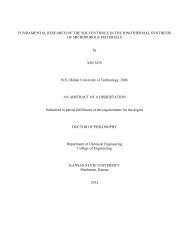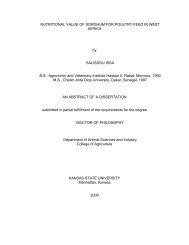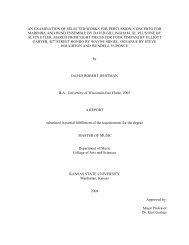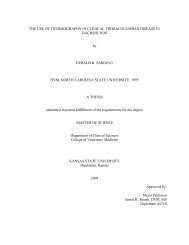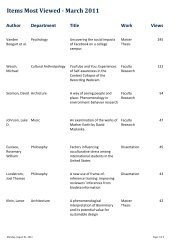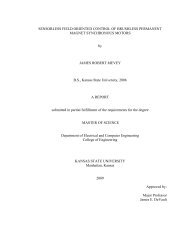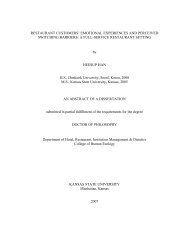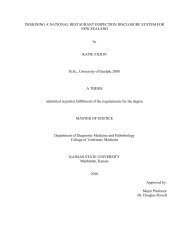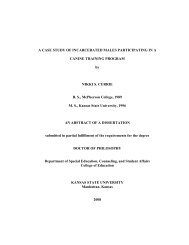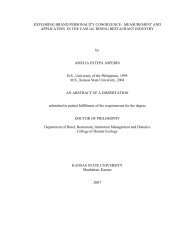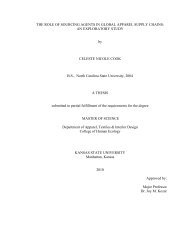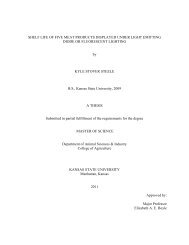SELFISH INTENTIONS - K-REx - Kansas State University
SELFISH INTENTIONS - K-REx - Kansas State University
SELFISH INTENTIONS - K-REx - Kansas State University
You also want an ePaper? Increase the reach of your titles
YUMPU automatically turns print PDFs into web optimized ePapers that Google loves.
In colonial America, absolute divorce with the right to remarry was a real possibility only<br />
in the New England colonies dominated by Puritan thought. As the historical geographer Mary<br />
Somerville Jones concludes about the significance of the Puritans’ religious views, these<br />
colonies “readily accepted the concept of absolute divorce for serious marital offenses, which<br />
had been elaborated by such leaders as Luther, Calvin, and Wesley. Therefore, New England<br />
colonies permitted divorce, which could be granted by civil courts, the legislature, or the<br />
governor.” 16 The most widely accepted grounds for divorce in the 1600s were adultery,<br />
desertion (5 years), impotence, fraudulent contract, consanguinity, and bigamy. 17<br />
This is not to say, however, that divorce was common in the New England colonies.<br />
Even though Massachusetts and Connecticut had liberal divorce laws for that time, the two<br />
colonies, with a combined population of 110,000, recorded a total of eleven divorces during the<br />
1690’s. During a fifty year period in the 18 th century, from 1738-1788, that rate sharply<br />
increased with the Connecticut legislature granting 390 divorces. Even though divorce statistics<br />
from this period are unreliable, this number when compared with the surrounding colonies<br />
proved Connecticut granted substantially more divorces than other New England colonies.<br />
During this same period of time, Massachusetts granted approximately 192 divorces. As least<br />
one historian believes that Connecticut had become a magnet for persons from other colonies<br />
desperate to get a divorce. Mary Somerville Jones maintains that it “is possible to surmise that<br />
even at this early date Connecticut was granting some out-of-state divorces, probably to New<br />
York residents, since it was for many years the only state in New England allowing divorce for<br />
the all-encompassing omnibus clause.” 18<br />
16 Jones, 17.<br />
17 Ibid.<br />
18 Ibid., 18. The omnibus clause allowed a petitioner to prove that there had been a marital breakdown.<br />
4



